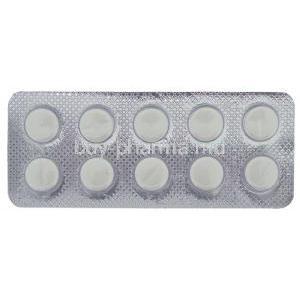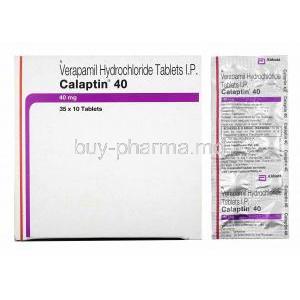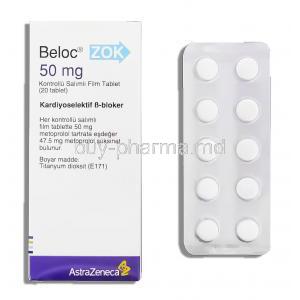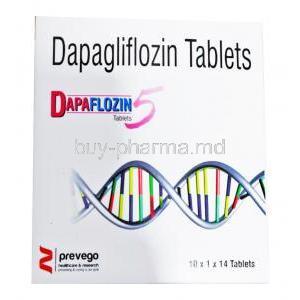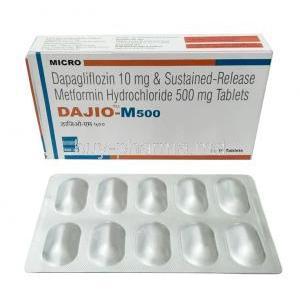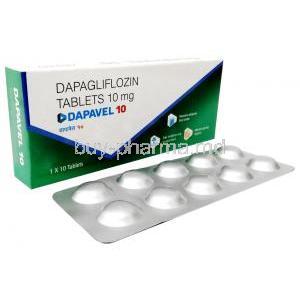Biselect, Bisoprolol Tablet
- Introduction to Biselect
- Composition of Biselect
- Therapeutic Uses of Biselect
- Off-Label Uses of Bisoprolol
- Mechanism of Action: How Bisoprolol Works
- Dosage and Administration
- Administration Guidelines
- Bisoprolol Fumarate Side Effects
- Bisoprolol Warnings
- Overdose and Emergency Management
- Storage and Handling of Biselect
- Future Perspectives on Bisoprolol Use
- Bisoprolol Withdrawal Symptoms
Introduction to Biselect
Biselect is a known form of bisoprolol that's highly effective as a beta blocker for managing heart-related issues like hypertension and heart failure symptoms. It blocks certain natural chemicals in the body, such as epinephrine, that affect the heart and blood vessels, leading to lower heart rate and blood pressure while reducing strain on the heart's function.
It dates back to the 1970s when bisoprolol was introduced as part of advancements in beta-blocker medications. It is unique because it explicitly targets cardiac beta receptors to reduce side effects associated with vascular constriction often seen with nonselective beta blockers.

Composition of Biselect
Active Components: Bisoprolol is the main active ingredient in Biselect. It regulates the nervous system by selectively blocking the beta-1 adrenergic receptors. This targeted blocking helps lower the heart rate and myocardial contractility, which is beneficial in treating heart conditions.
Inactive Components and Their Functions: In addition to bisoprolol, the Biselect formulation comprises microcrystalline cellulose, sodium starch glycolate, and magnesium stearate. These substances are crucial for maintaining the ingredient's stability, bioavailability, and effective delivery.
Bisoprolol's half-life is 10 to 12 hours, allowing daily dosing and sustained action to improve patient adherence to the treatment regimen.
Bisoprolol Fumarate is the salt form of bisoprolol, which enhances its solubility and absorption compared to the drug form.
- When comparing bisoprolol and Metoprolol, it's important to note that both beta-blockers target beta, a subtype of receptors. However, metoprolol is known to have a chance of penetrating the blood-brain barrier, which might lead to an increased risk of side effects in the nervous system compared to bisoprolol.
- Comparatively speaking, bisoprolol and Propranolol are selective beta blockers. While bisoprolol is selective in its beta-blocking action, Propranolol is a selective beta-blocker affecting both beta subtypes, potentially resulting in respiratory issues for those more sensitive to its effects.
- Bisoprolol Hydrochlorothiazide consists of Bisoprolol as a beta blocker and Hydrochlorothiazide as a medication, with functions. Hydrochlorothiazide works by decreasing blood volume by enhancing urine production, while Bisoprolol acts by reducing cardiac output.
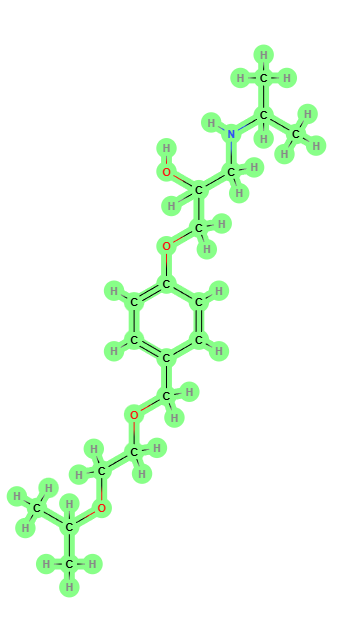
Therapeutic Uses of Biselect
Uses in Cardiovascular Conditions: Biselect is widely recognized for its effectiveness in treating issues. It is prescribed for managing high blood pressure (hypertension), chronic heart failure, and chest pain (angina pectoris). Its ability to reduce stress on the heart has established it as a medication in treatment.
Benefits in Managing Blood Pressure: Biselect significantly lowers blood pressure within arteries due to its beta-blocking properties, thereby reducing strain on the heart and improving heart muscle function. This characteristic helps control blood pressure and decreases the likelihood of cardiovascular-related deaths.
The use of Biselect in treating heart failure helps increase the chances of survival for patients by slowing down the advancement of the condition and reducing the need for hospitalization caused by worsened heart failure symptoms.
- When dealing with fibrillation (Afib), using bisoprolol like Biselect can help control the heart rate. This is crucial for managing this heart rhythm condition effectively and reducing the chances of blood clots forming in the body.
- Taking Bisoprolol Hemifumarat helps improve the medication's absorption in the body. It maintains a level in the bloodstream for a stable treatment outcome, an excellent benefit for patients with intricate heart conditions.

Off-Label Uses of Bisoprolol
Off-label uses of bisoprolol go beyond its approved purposes. These include treating migraine prevention and hyperthyroidism-induced rapid heartbeat in practice despite not being officially approved for these conditions by regulatory authorities. These alternative applications harness the beta-blocking properties of bisoprolol to alleviate symptoms in situations that are not directly linked to problems.
Studies have extensively demonstrated the effectiveness of bisoprolol in these traditional roles and indicate its potential to offer benefits beyond the conventional scope of cardiovascular treatment. Curbing system activity lies a significant truth and crucial factor that may trigger diverse non-cardiac ailments.
Case studies and advice from healthcare practitioners vividly showcase the effectiveness of bisoprolol in use. They are supported by endorsements from professionals who recognize their safety and effectiveness levels. These recommendations help steer decisions when conventional treatment approaches prove inadequate.
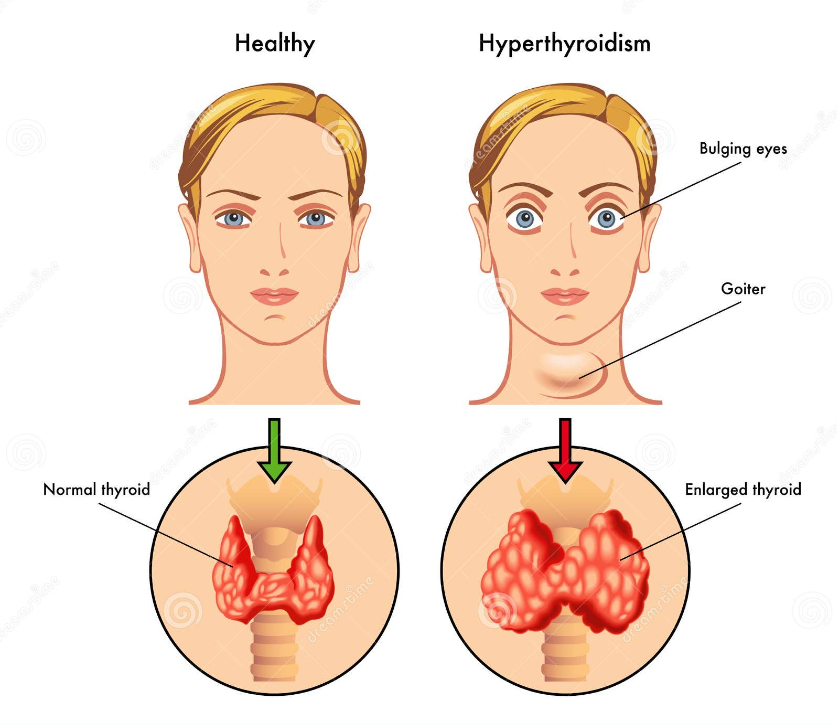
Mechanism of Action: How Bisoprolol Works
The medication Biselect works by using its component bisoprolol to act as a blocker for beta receptors found mainly in the heart tissues, known as beta. 1 Adrenergic receptors. This specific blocking helps reduce the stimulation by the system, which plays a major role in cardiovascular stress responses.
Effects on Heart Rate and Blood Pressure: By decreasing the impact of adrenaline and other stress hormones on the heart, bisoprolol effectively lowers the heart rate ( effect ). Decreases the strength of the heart's contractions (inotropic effect). These measures help reduce blood pressure and ease the strain on the heart and blood vessels.
Impact on the Renin-Angiotensin System: Bisoprolol indirectly influences the angiotensin system, a mechanism essential for regulating blood pressure. By limiting activity triggered by adrenaline, bisoprolol lowers angiotensin II production, which results in blood vessels and further lowers blood pressure.
Dosage and Administration
Dosages Guidance: The amount of Biselect to take differs based on the ailment being addressed. A liked initial dosage for blood pressure might be 5 mg per day, with the chance of a rise to 10 mg based on how the patient responds and treatment objectives. In cases of heart failure, the treatment could be initiated at 1.25 mg per day and then increased to a regular dose of 10 mg, depending on how well it is tolerated and how effective it is.
- Dosage Changes for Different Patient Categories: Adjustments in dosing are needed for patients with kidney or liver issues that impact how the drug is metabolized and cleared from the body. These patients might need to start with doses and be closely monitored as treatment progresses.
- If you forget to take your medication at the time but remember later and it's not close to your next dose, you should take the missed dose. If it's almost time for your scheduled dose, it's better to skip the missed one to prevent accidentally taking too much medication.
- When treating fibrillation with Bisoprolol medication, the recommended initial dose is typically 2.5 mg daily before any adjustments are made depending on how the patient responds to the treatment and their ability to tolerate it.
- When dealing with palpitations linked to anxiety or occasional stress episodes, a lower dose of bisoprolol ranging from 2.5 to 5 mg can be used to help lower the heart rate and alleviate symptoms effectively.
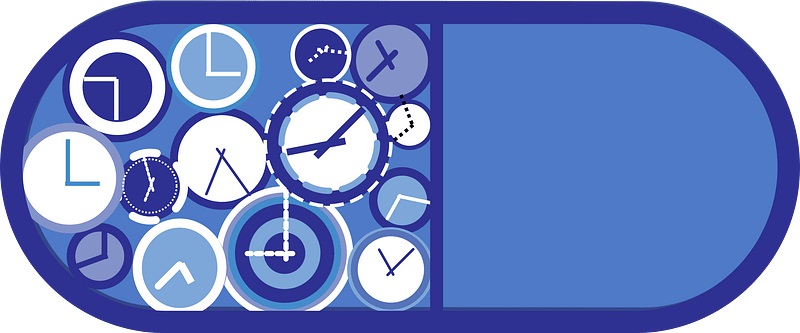
Administration Guidelines
- Tips for Patients: As individuals age, their threshold to respond to bisoprolol may be heightened, requiring modifications in dosage and close observation for heart-related reactions and adverse effects. Commencing treatment with the amount to determine tolerance is a wise approach within this age group.
- Special Considerations for Expectant Mothers and Breastfeeding Moms: Bisoprolol falls under the FDA Pregnancy Category C classification, signifying uncertainty of risk during pregnancy necessitating administration to women contingent on weighing the advantages against potential dangers to the developing baby. Breastfeeding mothers should be careful, too, because bisoprolol can pass into breast milk and might have an impact on the nursing baby's health.
- It's important to note that the safety and effectiveness of using bisoprolol in children have not been proven yet. If a doctor decides a child must take bisoprolol medication, it should be done under supervision, with doses adjusted based on how the child responds to treatment and tolerates it.
Bisoprolol Fumarate Side Effects
Patients often experience side effects such as fatigue, dizziness, and headaches when taking bisoprolol fumarate. These symptoms are usually mild and decrease as the body gets used to the medication.
- Severe Adverse Reactions and Their Signs: Some side effects to watch out for are bradycardia (a prolonged heart rate), hypotension (low blood pressure), and worsening heart failure symptoms. If you experience any of these symptoms, it is essential to seek advice.
- Some individuals taking bisoprolol may notice an increase in weight because of metabolism and water retention, which commonly occur as side effects.
- Hair loss caused by Bisoprolol is not very common but can happen and might be upsetting for the individual; however, it is reversible once the medication is stopped.
- Erectile dysfunction can occur as a side effect of bisoprolol as it may hinder the vasodilation mechanisms required for achieving an erection by inhibiting sympathetic nervous activity.
Sometimes, individuals may experience anxiety or a worsening of their anxiety symptoms when taking Bisoprolol due to its impact on the system. Patients should talk to their doctor about any symptoms that are not getting better or worsening over time because they might need to adjust their medication dosage or switch to medicine to deal with side effects properly. If they experience reactions like slowing of the heart rate or signs of heart failure, they need to seek immediate medical help.

Bisoprolol Warnings
- Notably, NSAIDs can lessen their ability to lower blood pressure, and using them concurrently with calcium channel blockers such as verapamil might worsen heart suppression.
- Using bisoprolol with alcohol can increase the medication's blood pressure-lowering impact and may result in heightened feelings of dizziness or lightheadedness for individuals taking it; hence, it is typically recommended for patients to reduce or abstain from alcohol consumption while using this drug.
- People on bisoprolol should avoid foods high in potassium, like bananas and potatoes because bisoprolol can raise potassium levels in the blood, which could cause hyperkalemia.
- Patients with diabetes or thyroid issues or those receiving desensitization therapy for allergies need to be careful when using bisoprolol since it may hide symptoms. It is necessary to monitor these conditions closely.
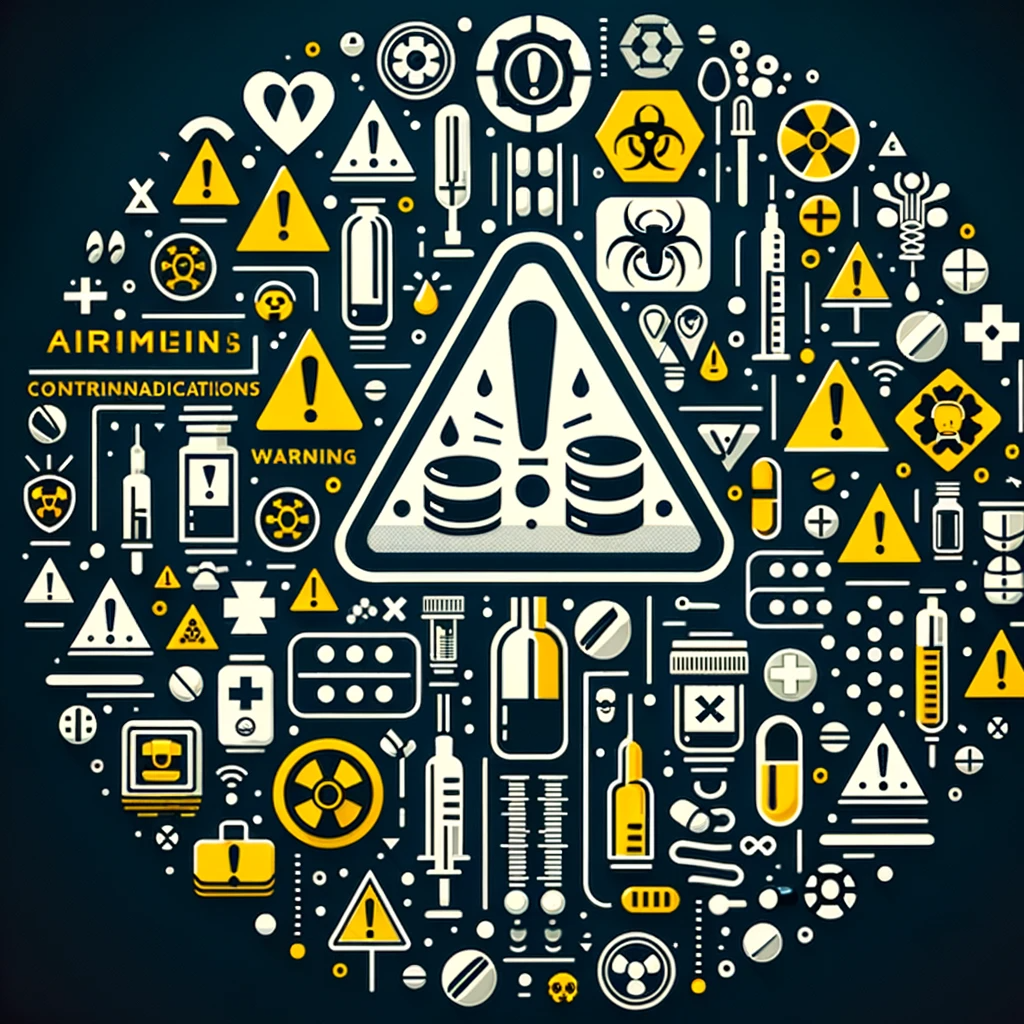
Overdose and Emergency Management
- Signs of Taking Too Much Bisoprolol: If someone takes Bisoprolol, they might experience severe slow heart rate (bradycardia), low blood pressure (hypotension), wheezing, and sudden heart failure. It's essential to identify these issues early for effective treatment and recovery.
- Immediate Actions and Treatments: If someone overdoses with bisoprolol, they must ensure their airway and breathing are stable. IV fluids, atropine, and vasopressors may be needed to help the heart function. Glucagon has been employed as a remedy to counteract the heart impact of beta blockers over time.
- Following an overdose incident requires monitoring in a medical environment to address any possible issues adequately. The extended care plan also includes fine-tuning the patient's medication routine to prevent future incidents.
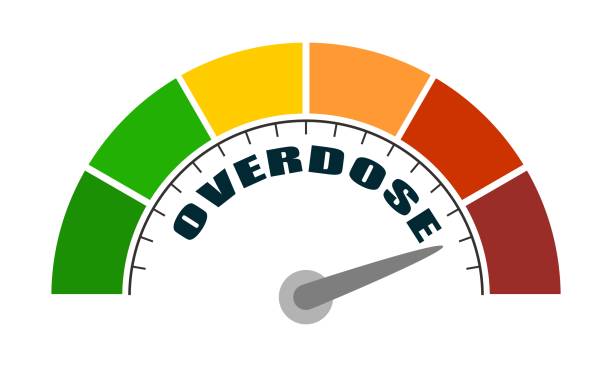
Storage and Handling of Biselect
- Storage Recommendations: Store Biselect in a dry place at room temperature ( 20°C to 25°C or 68°F to 77°F) away from direct sunlight to preserve its effectiveness and extend its shelf life.
- Disposal Guidelines: Proper disposal of expired Biselect according to local regulations is important to prevent harm to the environment and others' safety. Consider returning it to a pharmacy take-back program for safe disposal.
- To ensure the tablets work effectively, it's important to handle them with dry hands to avoid contamination or harm caused by handling methods like crushing or breaking them, which may affect the medication's effectiveness.
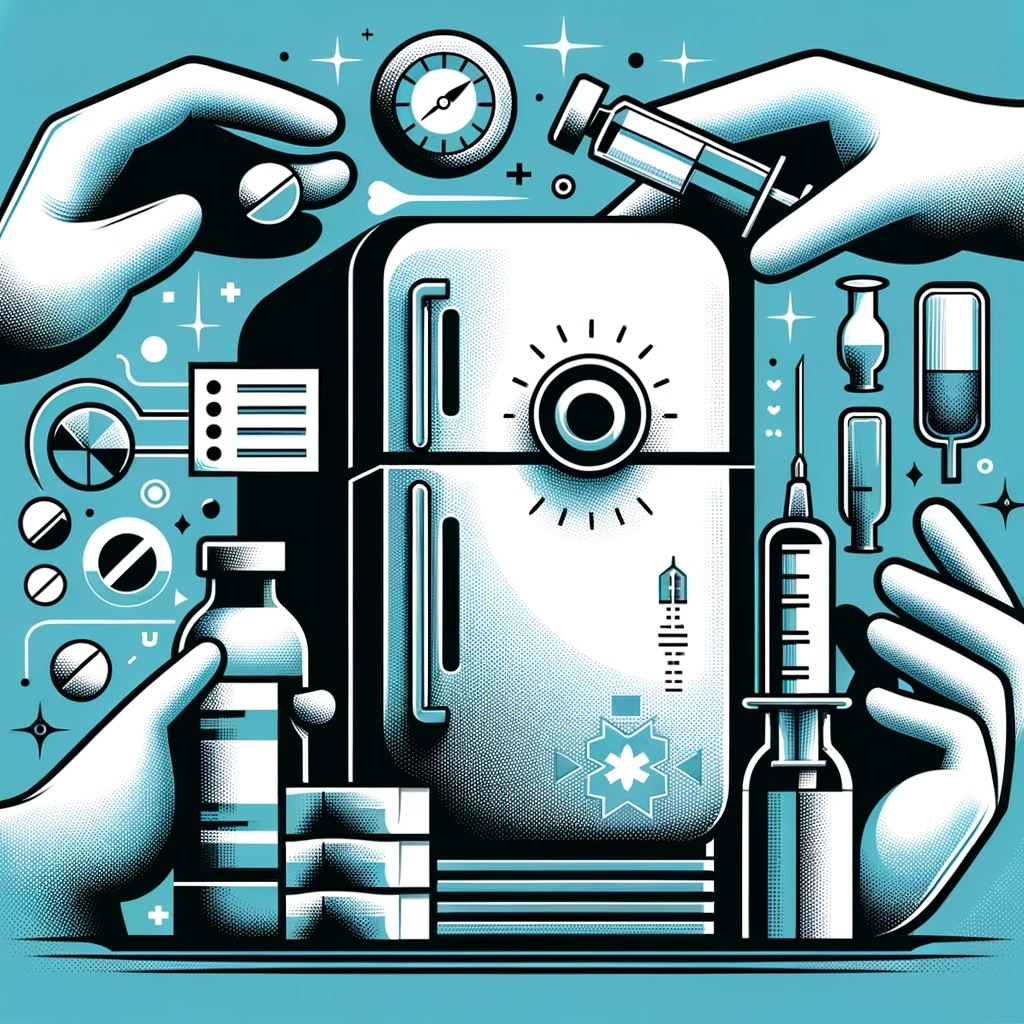
Future Perspectives on Bisoprolol Use
Studies exploring bisoprolol have revealed its potential in areas beyond the heart-related treatments it is traditionally known for, such as obstructive pulmonary disease (often abbreviated as COPO). Additionally, investigating its effectiveness in stress-induced conditions shows promise due to its targeting of beta receptors without causing major breathing-related issues.
- Comparative Studies with Beta Blockers: Comparative research evaluates bisoprolol compared to other beta-blockers such as metoprolol and atenolol. Data has indicated that bisoprolol might present control over heart rate, with fewer adverse reactions. This finding could potentially impact the prescription preferences in the future.
Bisoprolol Withdrawal Symptoms
Stopping bisoprolol suddenly can cause withdrawal symptoms, like heartbeats and spikes in blood pressure that could lead to a heart attack in instances. Reducing the medication under guidance is essential instead of stopping abruptly to avoid such complications. Educating patients about withdrawal symptoms is crucial for managing expectations and ensuring a transition off the pill. During tapering, healthcare professionals must regularly monitor dosage adjustments and prevent any impacts.
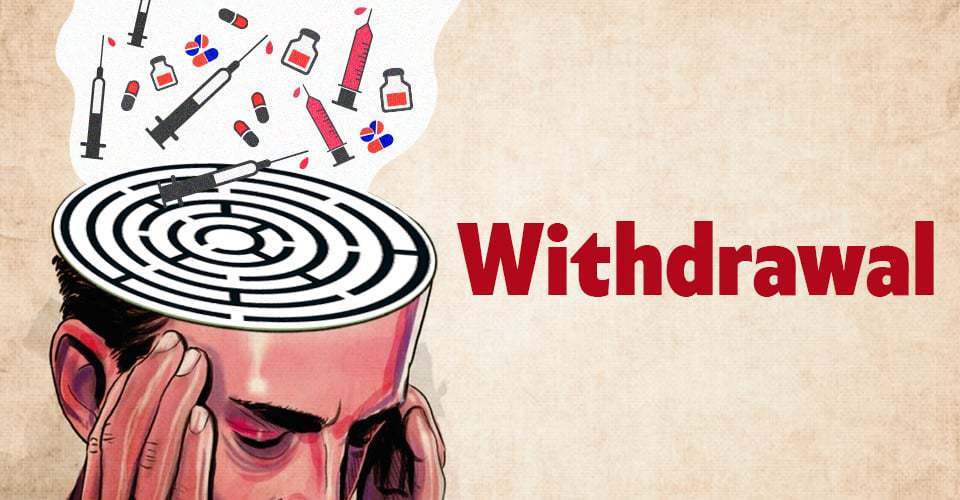
Biselect, Bisoprolol Tablet FAQ
- Are Bisoprolol beta blockers
- Are Bisoprolol blood thinners
- Are Bisoprolol and metoprolol the same
- Are Bisoprolol and Bisoprolol fumarate the same
- Are Bisoprolol and propranolol the same
- Are all Bisoprolol tablets the same
- Can Bisoprolol cause bradycardia
- Can Bisoprolol cause kidney problems
- Can Bisoprolol be taken at night
- Can Bisoprolol cause hyperkalemia
- Can Bisoprolol cause erectile dysfunction
- Can Bisoprolol cause gastritis
- Can Bisoprolol cause weight gain
- Can Bisoprolol make you tired
- Can Bisoprolol cause anxiety
- Can Bisoprolol cause hair loss
- Can Bisoprolol be cut in half
- Can Bisoprolol be crushed
- Can Bisoprolol cause heart failure
- Can Bisoprolol cause low blood pressure
- Can Bisoprolol cause shortness of breath
- Can Bisoprolol overdose cause death
- Can Bisoprolol and propranolol be taken together
- Does Bisoprolol cause weight gain
- Does Bisoprolol cause hair loss
- How Bisoprolol works
- How much does 2.5 mg of Bisoprolol lower heart rate
- How long do Bisoprolol side effects last
- How to stop taking Bisoprolol safely
- How long does Bisoprolol stay in your system
- Is 2.5 mg of Bisoprolol, a low dose
- Is 1.25 mg of Bisoprolol a low dose
- What are Bisoprolol tablets for
- What are Bisoprolol tablets taken for
- What are Bisoprolol tablets prescribed for
Are Bisoprolol beta blockers
Yes, Bisoprolol is a beta-blocker.
Are Bisoprolol blood thinners
Bisoprolol doesn't thin the blood. It's a type of beta-blocker medication.
Are Bisoprolol and metoprolol the same
Bisoprolol and metoprolol may be beta blockers. They are not the medication.
Are Bisoprolol and Bisoprolol fumarate the same
Yes indeed! Bisoprolol and bisoprolol fumarate are essentially medicine; "Fumarate" signifies the salt compound combined with.
Are Bisoprolol and propranolol the same
Bisoprolol and propranolol are not identical. They belong to the categories of beta blockers.
Are all Bisoprolol tablets the same
Not every bisoprolol tablet is identical. They may differ in strength and composition, such as whether they're released or Extended-Release formulations.
Can Bisoprolol cause bradycardia
Yes, Bisoprolol can cause Bradycardia.
Can Bisoprolol cause kidney problems
While it's rare for bisoprolol to cause kidney issues, they can still occur in some cases.
Can Bisoprolol be taken at night
Yes, Bisoprolol can taken at night.
Can Bisoprolol cause hyperkalemia
Yes, Bisoprolol can cause Hyperkalemia.
Can Bisoprolol cause erectile dysfunction
Yes, Bisoprolol can cause erectile dysfunction.
Can Bisoprolol cause gastritis
Bisoprolol usually doesn't lead to gastritis issues.
Can Bisoprolol cause weight gain
Indeed, bisoprolol might lead to an increase in body weight, although this occurrence is quite rare.
Can Bisoprolol make you tired
Yes, Bisoprolol can make you tired.
Can Bisoprolol cause anxiety
Yes, Bisoprolol can cause anxiety in some cases.
Can Bisoprolol cause hair loss
Hair loss can occur with bisoprolol use. It is uncommon.
Can Bisoprolol be cut in half
Sure thing! Bisoprolol can be halved as long as it's not an extended-release tablet.
Can Bisoprolol be crushed
No, Bisoprolol should not be crushed.
Can Bisoprolol cause heart failure
Sure thing! Bisoprolol has the potential to exacerbate heart failure in situations when it is not taken according to the guidelines.
Can Bisoprolol cause low blood pressure
Yes, Bisoprolol can cause low blood pressure.
Can Bisoprolol cause shortness of breath
Yes, Bisoprolol can cause shortness of breath.
Can Bisoprolol overdose cause death
Yes, Bisoprolol overdose can cause death.
Can Bisoprolol and propranolol be taken together
It's not recommended to take bisoprolol and propranolol together without guidance since both are beta-blockers that could raise the chances of experiencing adverse effects.
Does Bisoprolol cause weight gain
Weight gain is not a side effect often linked to Bisoprolol use.
Does Bisoprolol cause hair loss
Hair loss typically does not occur with bisoprolol treatment.
How Bisoprolol works
When bisoprolol is used in the body system, it blocks receptors in the heart that respond to adrenaline and noradrenaline chemicals naturally produced by the body for the fight-or-flight response; this helps to slow down the heart rate and reduce the force of contractions of heart muscles, which results in lowering blood pressure and reducing strain on the heart muscles.
How much does 2.5 mg of Bisoprolol lower heart rate
The decrease in heart rate caused by a 2.5 mg dosage of bisoprolol may vary among people. On average, it can lower the heart rate by about 10 to 15 beats per minute.
How long do Bisoprolol side effects last
The length of time it takes for Bisoprolol side effects to show can differ for each person; most may lessen as the body gets used to the medicine over a week. However, if the side effects continue or become serious, it is advisable to consult with a healthcare professional.
How to stop taking Bisoprolol safely
To safely discontinue the use of Bisoprolol medication without any complications or negative impact on heart health conditions, it is important to taper off the dosage, with the support and guidance of a healthcare professional, to prevent any withdrawal symptoms or potential adverse reactions.
How long does Bisoprolol stay in your system
Bisoprolol stays in your body for 10 to 12 hours before being cleared out over a period of 2 to 3 days.
Is 2.5 mg of Bisoprolol, a low dose
Indeed! Taking 2.5mg of bisoprolol is generally seen as a dosage.
Is 1.25 mg of Bisoprolol a low dose
Sure thing! A dose of 1.25mg of bisoprolol is indeed classified as a amount.
What are Bisoprolol tablets for
The medication Bisoprolol tablets are prescribed for managing hypertension and heart failure, preventing angina-related chest pain, and decreasing the likelihood of additional heart issues following a heart attack.
What are Bisoprolol tablets taken for
People use bisoprolol tablets to control blood pressure and heart failure while also preventing angina (chest pain) and lowering the chances of incidents following a heart attack.
What are Bisoprolol tablets prescribed for
Doctors often recommend bisoprolol tablets to control blood pressure and heart failure while also helping to prevent chest pain (angina) and lower the chances of experiencing heart issues after a heart attack.


